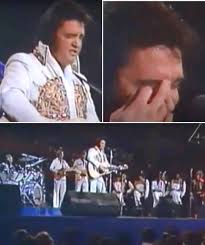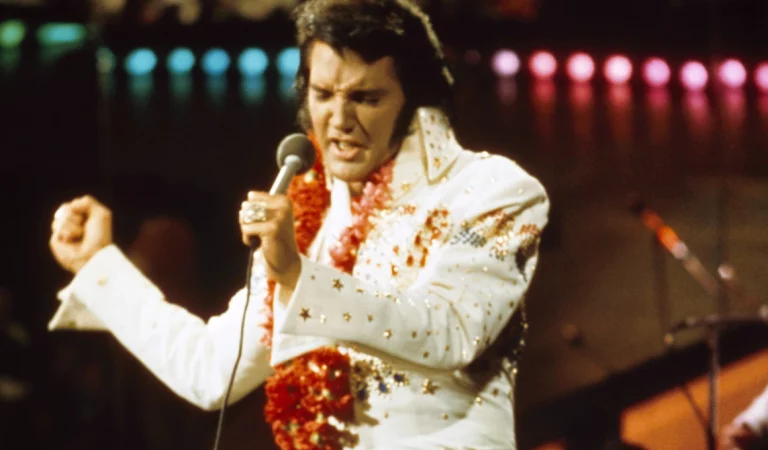By the mid-1970s, the musical landscape had shifted dramatically. The raw energy of early rock ’n’ roll had given way to disco’s shimmering pulse and punk’s snarling rebellion. And at the center of this changing world stood Elvis Presley—not the leather-clad rebel who once shook the world, but a man who carried an almost tragic majesty. It was during this reflective, weary stage of his life that he recorded “Hurt”—a song that would become more than just another entry in his catalog. It was a haunting cry from deep within, a glimpse of vulnerability few artists ever dare to reveal. Released in March 1976 from the album From Elvis Presley Boulevard, Memphis, Tennessee, the track reached only No. 28 on the Billboard Hot 100, but its true home was on the country charts, where it climbed to No. 6.
The sessions that produced “Hurt” were unlike traditional studio recordings. RCA engineers rolled a mobile setup into Graceland’s famed Jungle Room because Elvis, increasingly withdrawn, refused to work anywhere else. Within those familiar walls, surrounded by the trappings of his private world, he delivered one of his most devastating vocal performances. Each phrase carries exhaustion and defiance, as though he were clawing his way through the weight of his own existence. The thunderous roar he unleashed after the song’s climax became legendary, a visceral sound that stunned both the studio and later, live audiences. On stage, he would sometimes collapse to his knees at the end, a man broken yet unbowed, offering himself completely to the music.
For those lucky enough to see him in those final years, the performance of “Hurt” was unforgettable. Elvis looked fragile, worn down by illness and the demands of fame, yet the song ignited something within him. For a few minutes, he seemed to burn again with the intensity of the man who had once redefined music itself. But this wasn’t the fire of youth—it was the fire of pain, of confession, of release. It wasn’t about lost love alone; it was about the crushing loneliness of being trapped in legend, the toll of living in the spotlight, and the humanity behind the myth.
Today, more than forty years later, “Hurt” stands as one of Elvis Presley’s most powerful statements. Not simply a cover, not simply a hit, but a raw and aching testament to the man beneath the crown. It remains proof that sometimes, in our most fragile moments, we reveal our greatest truths.

